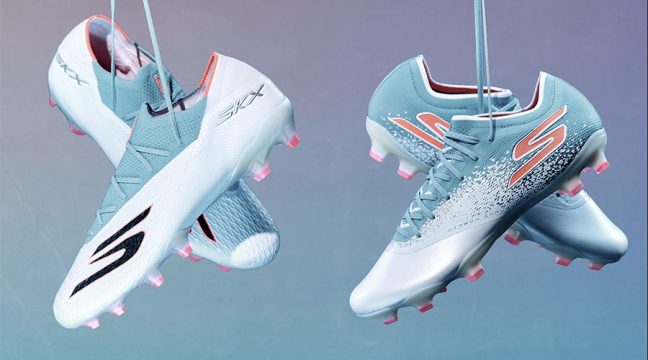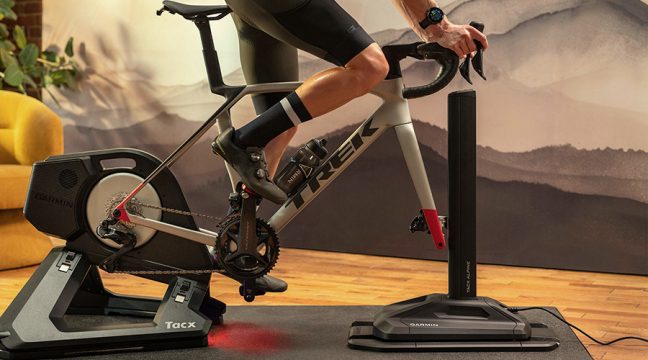The New Jersey Company expands facilities and predicts a boom in domestic manufacturing.
By Jahla Seppanen
Princeton Tec marked 2015 with an $18.3 million dollar tax grant from the New Jersey Economic Development Authority (EDA), for the purpose of keeping its home base in New Jersey and expanding its facilities and workforce.
The company, makers of outdoor, tactical, industrial and SCUBA light solutions, was courted by New York, Vermont and Virginia to relocate operations. These states all offered special relocation programs, not to mention the potential New York location would be close to Lake George – an alluring perk for Princeton Tec President Hal Stephens (son of Founder Bill Stephens).
 So what made the American manufacturer and 40-year-strong brand keep hold of its roots? VP of Princeton Tec, Dave Cozzone, told SGB, “Hal sat down and spoke with employees. He didn’t make the decision on his own.”
So what made the American manufacturer and 40-year-strong brand keep hold of its roots? VP of Princeton Tec, Dave Cozzone, told SGB, “Hal sat down and spoke with employees. He didn’t make the decision on his own.”
That is the focus at Princeton Tec – it’s workforce, whom range from skilled molding machine operators and wiz engineers to part- and full-time assemblers. “We like the workforce we have, and didn’t need to uproot,” said Cozzone, who has been with the company in New Jersey for 18-plus years.
In the time Cozzone has been with Princeton Tec, he has watched the company expand from three to 60 to 70 different products, if not more. “Growth has been phenomenal,” Cozzone attested. “Being able to keep it in the U.S. has been a tremendous task, especially in New Jersey. It’s more expensive to do business and run manufacturing here, with all the overhead.” And although the company tries to “run lean” when it comes to expenses, this mindset is put aside in the face of increasing employment opportunities.
With funding from the EDA grant, which will be rolled out in the form of tax credits sold to other corporations for cash over the course of 10 years, Princeton Tec will add more than 150 jobs. The company currently employs close to 220 people, and Cozzone expressed excitement in the prospect of seeing that number top 350.
 “Keeping people employed and keeping things going is key in this day and age,” he said. As a Made In The USA manufacturer, Princeton Tec understands that honoring the men and women who handle the products, from idea to engineering to the shipping labels, is the only way to maintain a passionate brand. “Pride,” Cozzone said. “They understand and know where the end product is going, so they put a lot of pride in their building.”
“Keeping people employed and keeping things going is key in this day and age,” he said. As a Made In The USA manufacturer, Princeton Tec understands that honoring the men and women who handle the products, from idea to engineering to the shipping labels, is the only way to maintain a passionate brand. “Pride,” Cozzone said. “They understand and know where the end product is going, so they put a lot of pride in their building.”
After all, Princeton Tec lighting solutions are life-saving devices. Along with a growing Outdoor sector, the company also provides specialized lighting solutions to tactical and industrial users, including the Army, Navy, Air Force, Marines and all branches of the military. Some of their specialty helmets don’t even hit the commercial circuits. These products go to industrial workers for gas and electric who have to rely on quality products. Many Princeton Tec Ambassadors who test product before going to market are members of elite military and industrial groups, along with extreme outdoor athletes – we’re talking ice cave climbers among others.
“We were the first out of the gate with a LED and Max LED, and we were first because of the crew we have behind us,” said Cozzone. “Everyone here feels we make products that bring solutions.”
 Keeping manufacturing local means in the event of, for instance, the military calling upon Princeton Tec to make 10,000 lights in one week, the company can deliver. Quick response time came in handy in 2013, when the ultra-running craze took over the outdoor industry and Princeton Tec adapted to the quickly changing market to release a new line of headlamps made specifically for the distance warrior.
Keeping manufacturing local means in the event of, for instance, the military calling upon Princeton Tec to make 10,000 lights in one week, the company can deliver. Quick response time came in handy in 2013, when the ultra-running craze took over the outdoor industry and Princeton Tec adapted to the quickly changing market to release a new line of headlamps made specifically for the distance warrior.
However, its commitment to U.S. manufacturing does not mean that the company shuns the practice of outsourcing. In 2001-02, it gave Asian manufacturing a go, which ended almost as soon as the experiment began. Cozzone said, “We weren’t getting the quality products we wanted, and surprisingly the cost-saving wasn’t there either, so we brought everything back under our roof.”
As the cost of goods and doing business in Asia is becoming increasingly expensive, Princeton Tec predicts a movement back to the source, projecting that many new and established brands will relocate all or part of operations to U.S. soil. This shift, as Cozzone mentioned, will be a win-win for everyone in the domestic manufacturing pool. “This means we can get more locally. A lot of things you couldn’t even find Made in the USA a couple years ago, like circuit boards and LEDs. That’s changing.” He added that turnaround time and cutting travel distances for obtaining goods will also benefit with an increased Made in the USA presence.
 “I don’t think there was a chance to move out of New Jersey,” Cozzone said. The VP dropped his guard and told the story of Princeton Tec founder Bill Stephens, who was faced with a similar decision to move from New Jersey in the 70s.
“I don’t think there was a chance to move out of New Jersey,” Cozzone said. The VP dropped his guard and told the story of Princeton Tec founder Bill Stephens, who was faced with a similar decision to move from New Jersey in the 70s.
Bill worked for the RCA Corporation as an engineer. The company moved and offered him a position at its new Indianapolis office. He decided against it and kept his footing in New Jersey, where he ran a small SCUBA diving shop. It was in the back of this dive shop in 1975 that PTec was born.
Being naturally inclined to tinker, Bill engineered the first pre-computer to measure how long a diver is underwater, calculating dive time versus how full the oxygen tank is. Then he started making dive lights, which blossomed to the thriving company Princeton Tec is today. Bill’s son (current president) and grandson both work for the company, making it a family run operation for all 40 years of existence.
 The new expansion, slated to gain speed in 2016, includes opening an acquired facility that will double the size of production. This facility is located only 30 minutes from the corporate office. Cozzone and Stephens make weekly trips to its current manufacturing locations to check-in with workers and make sure everything is running smoothly.
The new expansion, slated to gain speed in 2016, includes opening an acquired facility that will double the size of production. This facility is located only 30 minutes from the corporate office. Cozzone and Stephens make weekly trips to its current manufacturing locations to check-in with workers and make sure everything is running smoothly.
With projected growth plans from the EDA grant, one might assume that an expanded workforce and larger facility would lend itself to making other accessory products. But PTec remains loyal to its core lighting category. This prompted SGB to ask one more question: “Why light?”
Cozzone simply smiled and said, “because we know it always gets dark.”










